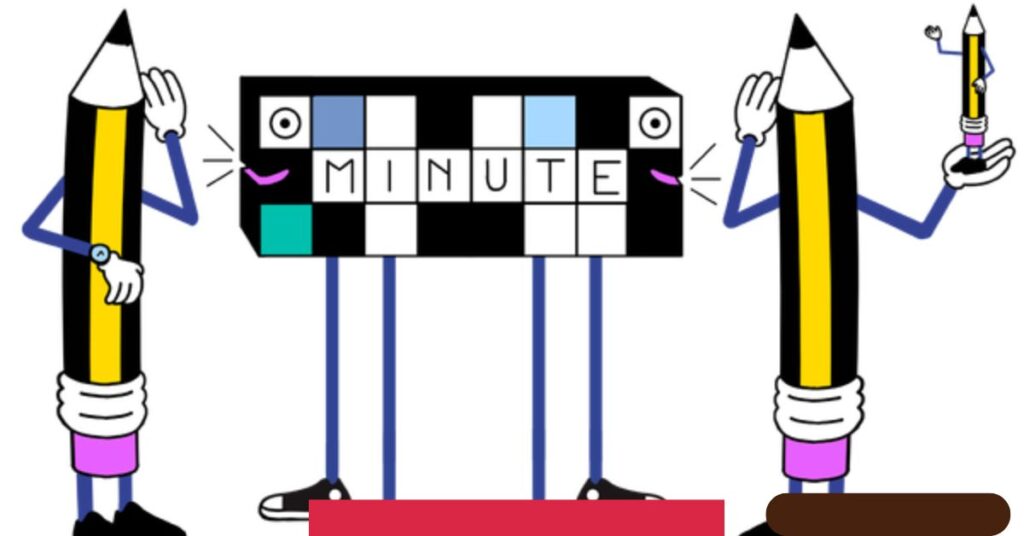Crossword puzzles have captured the hearts and minds of enthusiasts for decades. They blend challenge, wit, and a unique way of learning new things, making them a popular pastime across generations. Among the many iconic crossword puzzles, the New York Times Crossword stands out as a hallmark of intellect and creativity. Let’s delve into what makes the NYT Crossword so captivating, how the phrase “nice going NYT crossword” has become a staple for enthusiasts, and the ways it impacts players both old and new.
A Brief History of Crosswords
The first crossword puzzle appeared in a 1913 edition of the New York World, designed by Arthur Wynne. Over the years, crosswords evolved into a global phenomenon, with publications around the world dedicating columns and entire sections to this engaging activity. The New York Times began publishing crosswords in 1942, and since then, its puzzles have been renowned for their creativity, difficulty, and cultural relevance.
Why People Love the NYT Crossword
For crossword enthusiasts, completing the NYT Crossword often feels like solving a complex riddle. The sense of accomplishment and the challenge of decoding clues appeal to both novice players and seasoned solvers. Terms like nice going NYT crossword often echo among players who celebrate completing particularly tricky grids.
Clever Clues and Cultural References
One of the most exciting aspects of the NYT Crossword is its use of clever wordplay and cultural references. Solvers frequently encounter clues that demand lateral thinking, a deep understanding of pop culture, or historical knowledge.
For example, a clue might read, “It’s always in style but rarely worn” with the answer being “smile.” This level of ingenuity is what drives solvers to exclaim, “nice going NYT crossword”, applauding the creators for their brilliance.
Levels of Difficulty
The NYT Crossword offers varying levels of difficulty, starting with easier puzzles on Monday and ramping up to notoriously challenging ones on Saturday. Each level tests a player’s skills in unique ways, ensuring that every solver finds something suited to their capabilities. Achieving success at any level often earns a triumphant “nice going NYT crossword” from players who appreciate the fair challenge.
The Role of Technology in Modern Crosswords

In the digital age, crossword-solving has undergone a revolution. Apps and online platforms have made puzzles more accessible than ever. The NYT Crossword app allows players to tackle puzzles anywhere, at any time. It also offers features like hints and streak tracking to enhance the experience.
Community and Collaboration
The internet has fostered a vibrant crossword community. Social media platforms, forums, and blogs are teeming with discussions about particularly tricky clues or favorite themes. A phrase like “nice going NYT crossword” often appears in these communities, as players share their admiration for the puzzle’s ingenuity.
The Benefits of Solving Crosswords
Beyond the fun and challenge, crossword puzzles offer numerous cognitive and emotional benefits.
Improved Vocabulary and Knowledge
Solving crosswords is an excellent way to expand one’s vocabulary and general knowledge. Players often learn obscure words or facts while trying to complete a grid. Each new discovery is a step toward exclaiming, “nice going NYT crossword”, as solvers appreciate how much they’ve gained.
Enhanced Problem-Solving Skills
Crosswords demand a mix of logic, pattern recognition, and creativity. Regularly engaging in these puzzles hones critical thinking and problem-solving abilities.
Stress Relief and Mindfulness
For many, solving crosswords is a form of meditation. The focus required to decipher clues helps take the mind off daily stresses. Celebrating a well-crafted puzzle with a heartfelt “nice going NYT crossword” adds to the satisfaction.
Notable Crossword Milestones
The NYT Crossword has achieved several milestones over its history. Celebrating these moments often brings the phrase “nice going NYT crossword” to the forefront of conversations among fans.
Special Themes and Events
Themed puzzles are a favorite among solvers. Whether it’s a tribute to a historical event or a playful take on a holiday, these puzzles showcase the ingenuity of the creators.
Celebrity Contributions
Occasionally, celebrities have contributed to the NYT Crossword. Their unique perspectives often lead to memorable puzzles, prompting solvers to praise them with a spirited “nice going NYT crossword”.
Tips for Tackling the NYT Crossword

If you’re new to the NYT Crossword or looking to improve your skills, here are some tips to keep in mind:
Start with Mondays
The Monday puzzles are the easiest, making them ideal for beginners. As you build confidence, you can progress to more challenging grids.
Look for Clues You Know
Begin by solving the clues you’re confident about. This will give you a foothold and make the remaining answers easier to deduce.
Embrace Collaboration
Don’t hesitate to collaborate with friends or consult resources. The satisfaction of saying “nice going NYT crossword” is just as sweet when shared with others.
Learn Common Crossword Words
Certain words, like “emu” or “oreo,” appear frequently in crosswords. Familiarizing yourself with these recurring answers can provide a helpful edge.
Conclusion
The New York Times Crossword is more than just a puzzle—it’s a cultural phenomenon. Its clever clues, diverse themes, and intellectual challenges continue to captivate players worldwide. Whether you’re a seasoned solver or a curious newcomer, the joy of completing a grid and declaring “nice going NYT crossword” is universal.
Embrace the challenge, savor the journey, and celebrate each victory. After all, crosswords are a testament to the power of language, creativity, and human ingenuity. So, pick up your pen (or open your app) and get solving—there’s a world of discovery waiting in every grid!
Read more: Tough Loss Poker NYT Crossword Strategy & Lessons



